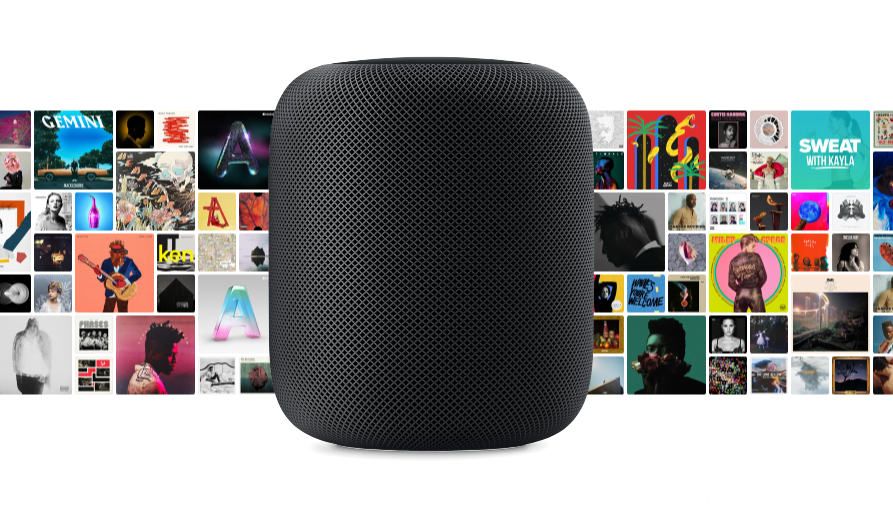
At $350, Apple’s HomePod speaker is much more expensive than the Amazon Echo and Google Home smart speakers. Yet, it lags far behind its rivals in terms of capabilities. Apple added support for multi-room audio control and streaming via AirPlay 2 a couple of months back, but those features were far from enough to make it worth buying.
A new report claims that Apple is working to add tons of new features to the HomePod speaker, including the ability to make and receive phone calls. According to French publication iGeneration, Apple has seeded a private beta of HomePod OS 12.0 to some corporate and retail employees to test the new features.
Apple testing these features for the HomePod speaker
The French site says users will be able to connect their iPhone to the HomePod speaker and then make outgoing calls, answer incoming ones, search the call history, make emergency calls, and redial numbers. Users will also be able to listen to their voicemail on the smart speaker. It is unclear whether the calls will be routed through cellular or a local WiFi network.
Apple said during the WWDC keynote event that the HomePod speaker would also be able to participate in audio FaceTime calls. Amazon Echo already allows users to make calls to other Echo devices owned by your contacts. Google’s Home speaker can make calls even without requiring a smartphone for connection.
Currently, the HomePod speaker isn’t capable of accessing your contacts, so it is unable to make a call. If you do want to call your contacts via Apple’s cylinder, you have to initiate the call on your iPhone and when the call begins, switch the audio output to HomePod. You have to use the same method for incoming calls as well – accept the call on your iPhone and then switch the audio to the HomePod.
Another cool feature part of the private beta is the support for Find My iPhone. The HomePod OS 12.0 beta allows you to locate your iPhone, iPad, and other devices through the HomePod and make it play a sound. It will eliminate the need to access a computer to use the Find My iPhone feature.
The beta software also includes a “fix Wi-Fi” button for people who frequently switch the WiFi network their HomePod speaker is connected to. The “fix Wi-Fi” function will allow HomePod to connect to the same WiFi network as your iPhone. Currently, users have to fully reset the HomePod to switch the network, which is downright annoying.
The HomePod OS 12.0 beta also includes multiple timers, which should be welcomed by users. You will be able to start and run more than one timer simultaneously. It will prove useful in situations where more than one things need to be timed separately. For instance, you could set a 30-minute timer for baking one item and a 10-minute timer for another item you are cooking.
Catching up with rivals
With these features, the HomePod speaker will be merely trying to catch up to rivals. Google Home is now capable of listening for follow-up commands while Amazon Echo has received updates to work as a home intercom.
It’s worth pointing out that Apple might not release to public all the features included in the private beta. The tech giant hasn’t given a timeline for releasing the HomePod OS 12.0, but we expect it to arrive alongside the iOS 12, macOS Mojave, tvOS 12, and watchOS 5 in September/October.
Meanwhile, Apple is holding a live Q&A event on July 25th for HomePod users. You can participate in the event by going to the HomePod community in Apple’s Support Communities. The Q&A event will be held between 11 AM and 3 PM Pacific Time on July 25th. HomePod specialists will be available to answer your queries related to the smart speaker.





